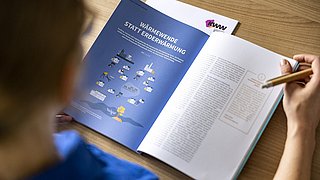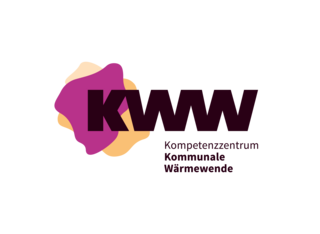Municipal heating transition: Where we currently stand
Robert Brückmann is head of dena's municipal heating transistion (KWW) in Halle (Saale). He reports on the current status of municipal heat planning (KWP) in Germany - and why good communication is so essential for success.

Over the next few years, all local authorities will have to draw up a heating plan. And the most important message: The heating transition is making progress! We are seeing very positive momentum in local authorities across Germany. The 80 or so cities with more than 100,000 inhabitants that are due to have completed their heat planning by 2026 have already set out on this journey. And we also see that a total of over 1,000 municipalities, which were not supposed to be ready until 2028, have already started.
At the same time, municipalities must learn to deal with this responsibility. Previously, energy issues were either dealt with by the municipal utilities or at federal level. There is no doubt that a great many tasks have fallen to the local authorities in recent years, and it will not be any easier if they are now given yet another responsibility. My impression is that most local authorities are managing this well because they have realised after the energy crisis caused by Russia's war of aggression against Ukraine: we have to do something here, otherwise our citizens and companies will get into trouble.
Successful heat planning requires convincing communication at all levels

It is particularly important that the municipalities communicate in all directions with regard to the KWP. Firstly, they communicate upwards, i.e. they also actively ask the countries what programmes for the KWP are running or being set up there. Secondly, it is important that local authorities communicate internally and get the key local players on board. It's not just the municipal utilities, it's also very much the housing industry and companies. And, of course, these are also the citizens. Homeowners also need to understand the role that heat planning can play for them. There is also communication with neighbouring municipalities: That they coordinate their efforts, that they ensure good cooperation, that they sound out opportunities to utilise heat sources jointly so that the large municipalities do not end up having secured heat sources and potential for themselves and the smaller municipalities around them lose out.
Support from the KWW
The Competence Centre for the Municipal Heating Transition (KWW) has already been able to help many stakeholders in municipal heating planning throughout Germany. Many cities and municipalities have been and are being informed and advised. Municipalities primarily want to learn from other municipalities, and KWW acts as a matchmaker, so to speak. Municipalities that have joined the KWP have a good feeling because they have the opportunity to shape a great deal and build the infrastructure for the future.

